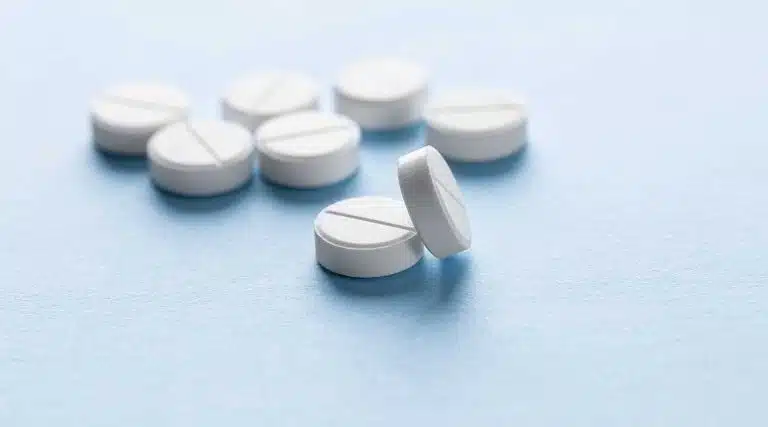Phenobarbital Addiction | Abuse Potential, Side Effects, & Treatment Options
- Phenobarbital Abuse Potential
- Phenobarbital Side Effects
- Overdose Symptoms
- Withdrawal Symptoms
- Treatment Options

Phenobarbital, found in brand name medications like Luminal and Solfoton, is a barbiturate medication.
Barbiturates refer to a range of sedative-hypnotic drugs that were once the go-to treatment for anxiety disorders before benzodiazepines like Valium and Xanax entered the market.
In more recent years, however, phenobarbital prescriptions have been mostly limited to treatment for Tourette’s syndrome, seizures, tics, and other repetitive motor disorders.
Phenobarbital Abuse Potential
The United States Drug Enforcement Administration classifies Phenobarbital as a Schedule IV drug, meaning it has a moderate potential for abuse leading to physiological dependence.
This means that phenobarbital is habit-forming, with dependence and addiction developing the longer the drug is used, although taking larger doses in order to get high may speed up the process.
Although Phenobarbital is relatively difficult to obtain compared to other sedatives, individuals taking it to get high may experience effects consistent with other central nervous system depressants like alcohol or other anti-anxiety medications:
- giddiness
- lowered Inhibitions
- a heightened sense of confidence and well-being
- intoxication, sedation, and poor motor control
Phenobarbital Side Effects
Short-Term Side Effects
Phenobarbital use is associated with several side effects:
- drowsiness
- headache
- dizziness
- excitement or increased activity (especially in children)
- nausea
- vomiting
- increase risk of birth defects
Long-Term Side Effects
Phenobarbital and barbiturate prescription medications in general are not recommended for long term use. Side effects of long term use include:
- physical dependence leading to withdrawal symptoms when you try to stop drug use
- increasing tolerance to the drug effects
- cognitive issues including impaired learning, memory, concentration, speech, and problem-solving
- increased risk of liver cancer
- acquired hypersensitivity or allergic reactions to phenobarbital
- increased risk of bone severe bone conditions
- hypotension (a reduction in blood pressure)
- reduced heart and breathing rates leading to hypoxia (low bodily oxygen)
- anemia (low iron levels, leading to poor red blood cell performance and fatigue)
- an overall decline in mental health and formation of various psychological disorders
Phenobarbital Overdose Symptoms
Drug addiction too often leads to a life-threatening medical situation: overdose.
Once you start taking phenobarbital, your body rapidly begins forming tolerance to the drug. This means you’ll need higher and more dangerous doses to get the same effect.
Phenobarbital overdose is particularly likely if the drug has been taken with alcohol, other anti-anxiety medications and tranquilizers, or opioids, all of which are central nervous system depressants.
Recognize an overdose on phenobarbital by spotting these symptoms:
- severe barbiturate intoxication (poor coordination, slurred speech, confusion, aggression, or paranoia)
- loss of consciousness
- crossed eyes or random eye movements
- hypothermia
- slowed or stopped breathing
- slowed heart rate
- extremely low blood pressure
- coma
If an individual overdoses with opioids, the effects can be reversed with naloxone. However, there is no antidote for an overdose caused by barbiturates, though medical treatment can help save victims.
If you suspect an overdose, call for emergency medical attention as quickly as possible.
Phenobarbital Withdrawal Symptoms
Withdrawal happens when the body has come to depend on a drug’s effects, leading to severe adverse effects when the user stops taking them.
But depending on the person involved and just how dependent they’ve become, withdrawal and detoxification can be dangerous.
Symptoms of phenobarbital withdrawal syndrome include:
- flu-like illness
- tremors and twitching
- muscle weakness
- nausea and vomiting
- dizziness
- insomnia and restlessness
- fatigue
- irritability
- anxiety
Other, more severe symptoms are also known to occur in some cases.
Treatment Options For Phenobarbital Addiction
Recovering from substance abuse, addiction, or dependence can be difficult without the help of practiced medical professionals. Addiction treatment centers offer a variety of different rehab programs that can be tailored to the severity of you or your loved one’s situation.
Residential/Inpatient Treatment
Inpatient rehab provides round-the-clock supervision and support inside a rehab center. Inpatient treatment may include:
- medical detox, allowing you to safely overcome withdrawal symptoms while under medical supervision
- treatment for co-occurring mental health disorders
- recreational activities and peer support
Outpatient Treatment
Outpatient rehab programs are a good fit for those experiencing milder cases of addiction, or for those who have finished a term of inpatient care.
In this type of program you’re able to travel to the treatment facility for appointments during the week while continuing to live at home and attend work as normal.
Behavioral Therapy
Behavioral therapy is a proven component of addiction treatment programs and has been in use for many years.
Through therapy sessions, you’ll learn to identify why you developed an addiction to prescription drugs and how you can change the way you think and feel about your situation.
If you or someone you care about needs help to overcome phenobarbital abuse or addiction, please contact Ark Behavioral Health today.
Written by Ark Behavioral Health Editorial Team
©2024 Ark National Holdings, LLC. | All Rights Reserved.
This page does not provide medical advice.
National Institute on Drug Abuse - Prescription CNS Depressants DrugFacts
National Library of Medicine: MedlinePlus - Phenobarbital

Questions About Treatment?
Ark Behavioral Health offers 100% confidential substance abuse assessment and treatment placement tailored to your individual needs. Achieve long-term recovery.
100% confidential. We respect your privacy.
Prefer Texting?
Our friendly support team is here to chat 24/7. Opt out any time.







 Learn More
Learn More








